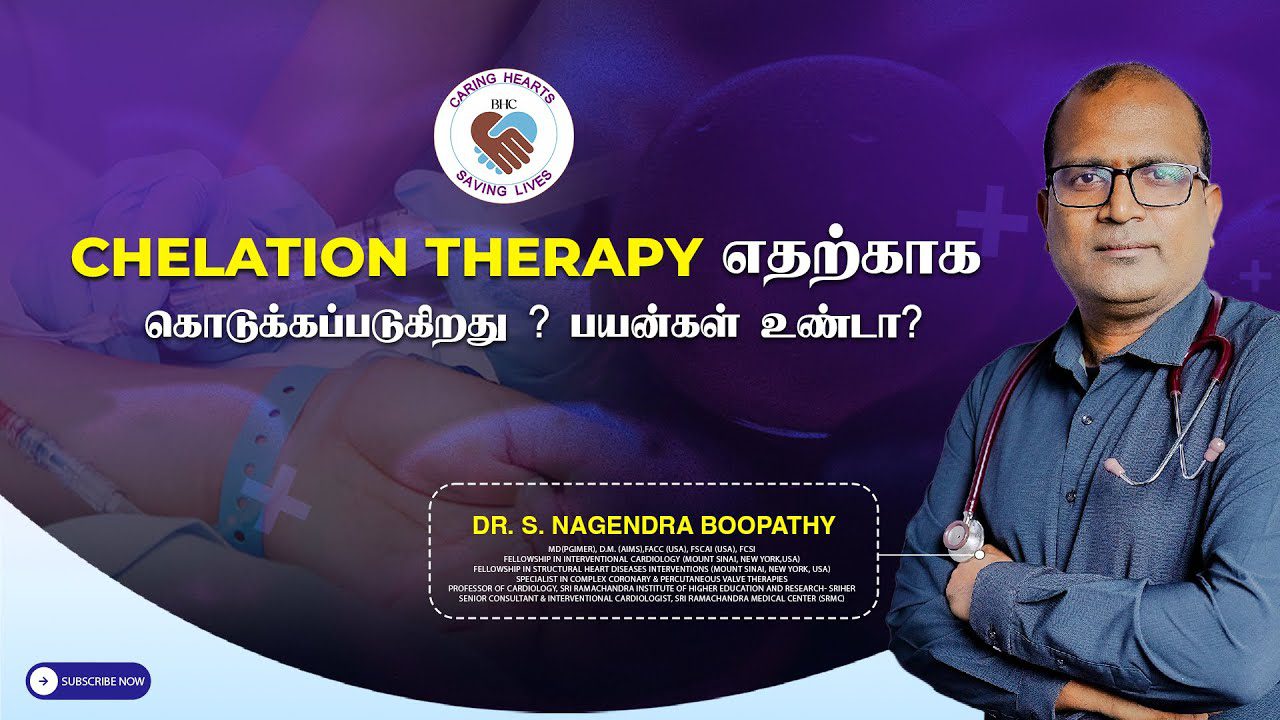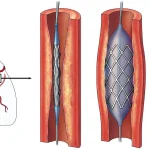Chelation therapy has gained popularity as an alternative treatment for heart disease and vascular problems. However, many patients and even some healthcare providers are still unclear about what it really entails, how it works, and whether it truly offers benefits for cardiovascular health. In this comprehensive article, we will explore the science, evidence, and clinical perspective behind chelation therapy, based on the expert insights of Dr. S. Nagendra Boopathy, a renowned Interventional Cardiologist practicing in Chennai.
By the end of this article, you will have a clear understanding of what chelation therapy is, how it is used, its effectiveness in treating heart conditions, and the current medical consensus on this treatment. This will help you make informed decisions if you or your loved ones are considering alternative therapies for heart disease.
Table of Contents
- Understanding Heart Disease and Artery Blockages
- What is Chelation Therapy?
- Scientific Evidence and Clinical Studies on Chelation Therapy
- Official Medical Recommendations and Guidelines
- Why Do Some Patients Opt for Chelation Therapy?
- Cost Considerations and Patient Experience
- What About Safety and Side Effects?
- Conclusion: Chelation Therapy and Heart Disease — What Should You Know?
- Frequently Asked Questions (FAQs) about Chelation Therapy and Heart Disease
- Final Thoughts
Understanding Heart Disease and Artery Blockages
To appreciate the role of chelation therapy, it is essential to first understand the underlying problem it aims to address — the buildup of harmful substances inside the arteries supplying blood to the heart.
Our arteries are like tubes that carry oxygen-rich blood to the heart muscle. Over time, due to various factors such as unhealthy diet, lifestyle, genetics, and aging, cholesterol and other fatty substances accumulate along the inner walls of these arteries. This process is called atherosclerosis. The buildup narrows the arteries, reducing blood flow.
Sometimes, calcium deposits also form on top of these cholesterol plaques, making the arteries stiff and further restricting blood flow. When the narrowing becomes significant, patients may experience symptoms like chest pain (angina), breathlessness, and fatigue. If a plaque ruptures and causes a sudden blockage, it can result in a heart attack.
This condition is medically termed as coronary artery disease (CAD), and it is one of the leading causes of death worldwide. Treatment options range from lifestyle changes and medications to procedures like angioplasty (stenting) and coronary artery bypass surgery.
What is Chelation Therapy?
Chelation therapy is an alternative medical treatment that involves administering agents called chelators intravenously, which bind to heavy metals and minerals in the bloodstream. The most commonly used chelating agent is Ethylene Diamine Tetraacetic Acid (EDTA).
The theory behind chelation therapy is that these chelators can remove harmful metals like lead, mercury, and calcium deposits from the blood vessels, thus “cleaning” or “detoxifying” the arteries. Supporters claim that this can reduce plaque buildup in the arteries and improve blood flow, potentially alleviating symptoms of heart disease and preventing heart attacks.
The treatment usually involves a series of intravenous infusions, often administered weekly over several months. Each session can be time-consuming and costly, with prices ranging from 10,000 to 15,000 Indian Rupees per session, leading to a total expense of over 3 million Rupees for a full course of 40 weeks.
Scientific Evidence and Clinical Studies on Chelation Therapy
Given the high cost and time commitment, it is natural to question whether chelation therapy really works and is safe. This is where scientific studies and clinical trials come in.
The National Institutes of Health (NIH) in the United States funded two major studies to evaluate the efficacy of chelation therapy in treating heart disease:
- First Study: This initial study showed some cost-benefit advantages, sparking interest in further research.
- Second Study (TACT2): Conducted from 2016 to 2023, this study involved nearly 1,000 patients who had coronary artery disease but had not undergone bypass surgery or angioplasty. The participants were divided into two groups: one receiving chelation therapy and the other receiving standard medical treatment without chelation.
The results of these studies were revealing. They found no significant difference in clinical outcomes such as reduction in heart attacks, hospitalizations, or mortality between the chelation group and the control group. In other words, chelation therapy did not provide any additional benefit over regular medical therapy.
Moreover, long-term use of chelation therapy was theorized to help remove circulating calcium and other deposits within the arteries, potentially improving blood flow. However, this hypothesis was not supported by the data from these rigorous trials.
Official Medical Recommendations and Guidelines
Based on the current evidence, major cardiovascular societies such as the American College of Cardiology (ACC) and the American Heart Association (AHA) do not recommend chelation therapy for the treatment of heart disease.
The U.S. Food and Drug Administration (FDA), which regulates medical treatments, has not approved chelation therapy as a standard treatment for heart conditions. While it is approved for treating heavy metal poisoning (such as lead poisoning), its use for cardiovascular disease remains unapproved and is considered experimental or alternative.
These organizations emphasize that evidence-based treatments like angioplasty, stenting, coronary artery bypass grafting, and appropriate medications remain the gold standard for managing coronary artery disease and preventing heart attacks.
Why Do Some Patients Opt for Chelation Therapy?
Despite the lack of strong scientific support, many patients seek chelation therapy as an alternative, especially when:
- They are unable or unwilling to undergo invasive procedures such as angioplasty or bypass surgery.
- They experience persistent symptoms despite taking standard medications.
- They are attracted by claims of natural detoxification and less invasive treatment.
- They have concerns about the risks or side effects of conventional treatments.
While patient choice is important, it is crucial to understand that opting for chelation therapy in place of proven treatments can lead to poor health outcomes. Many patients spend large sums on chelation therapy but return with worsening symptoms, which can be distressing and potentially life-threatening.
Cost Considerations and Patient Experience
One major drawback of chelation therapy is its high cost. An average session can cost between 10,000 to 15,000 Rupees, and a complete course requires weekly sessions for up to 40 weeks. This amounts to over 3 million Rupees, which is comparable to or even exceeds the cost of conventional treatments like angioplasty or bypass surgery.
Because of this financial burden, patients who choose chelation therapy may face significant economic strain without guaranteed benefits. Moreover, the time commitment and discomfort of weekly intravenous infusions add to the challenges.
What About Safety and Side Effects?
Chelation therapy is not without risks. Potential side effects include:
- Kidney damage due to the excretion of chelated metals.
- Low blood calcium levels leading to muscle cramps or heart rhythm disturbances.
- Allergic reactions or injection site complications.
- Electrolyte imbalances.
While generally considered safe when administered by trained professionals, these risks necessitate careful patient selection and monitoring.
Conclusion: Chelation Therapy and Heart Disease — What Should You Know?
Chelation therapy has been promoted as an alternative treatment for heart disease by claiming to remove harmful deposits from arteries. However, extensive scientific research and clinical trials have not demonstrated significant benefits of chelation therapy in improving cardiovascular outcomes.
Current medical guidelines do not recommend chelation therapy for heart disease due to the lack of evidence supporting its efficacy and the availability of better-proven treatments like angioplasty, bypass surgery, and appropriate medications.
Patients should be cautious about investing time, money, and hope in chelation therapy for heart conditions. It is always advisable to consult with qualified cardiologists and rely on evidence-based treatments tailored to individual patient needs.
In summary, while chelation therapy may have a role in treating heavy metal poisoning, it is not a substitute for scientifically proven therapies for coronary artery disease.
Frequently Asked Questions (FAQs) about Chelation Therapy and Heart Disease
1. What exactly is chelation therapy?
Chelation therapy involves intravenous administration of agents like EDTA that bind to metals in the bloodstream, theoretically removing harmful substances such as calcium and heavy metals from blood vessels.
2. Is chelation therapy effective in treating blocked arteries or heart disease?
Current scientific studies have shown no significant benefit of chelation therapy over standard medical treatments in improving heart disease outcomes.
3. What are the risks of chelation therapy?
Possible side effects include kidney damage, low blood calcium, allergic reactions, and electrolyte imbalances. It requires careful administration and monitoring.
4. How does chelation therapy compare to angioplasty or bypass surgery?
Angioplasty and bypass surgery are evidence-based, proven treatments for blocked arteries with well-documented benefits. Chelation therapy lacks such robust evidence and is not a substitute for these procedures.
5. Why do some patients still choose chelation therapy?
Some patients opt for chelation therapy due to fear of invasive procedures, persistent symptoms despite medication, or belief in natural detoxification. However, this choice should be made cautiously and with medical guidance.
6. Is chelation therapy approved by medical authorities?
While approved by the FDA for heavy metal poisoning, chelation therapy is not approved for treating heart disease and is not recommended by major cardiology associations.
7. How expensive is chelation therapy?
The treatment can cost between 10,000 to 15,000 Rupees per session and typically requires weekly sessions for many weeks, making it a costly option with no guaranteed benefits.
8. What should I do if I have heart disease?
If you have symptoms or diagnosis of heart disease, consult a qualified cardiologist. Evidence-based treatments like lifestyle changes, medications, angioplasty, or surgery remain the safest and most effective options.




